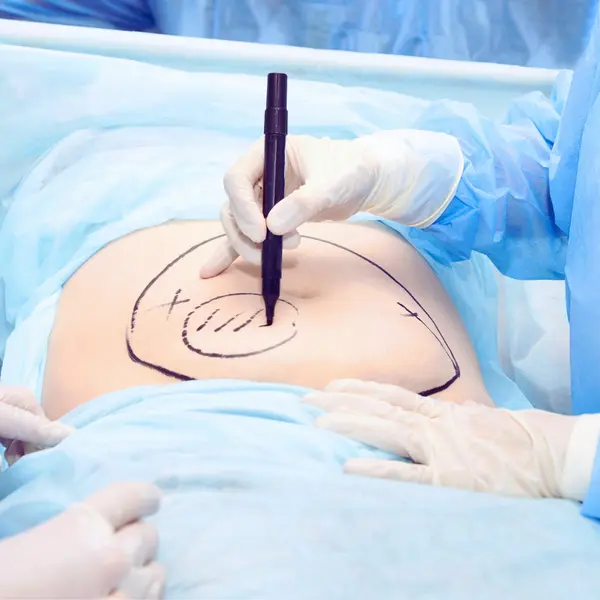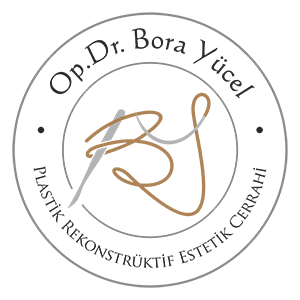Laser Liposuction

Individuals who want to have an aesthetic physique are increasingly turning to advanced cosmetic procedures. One of these procedures is laser liposuction. This minimally invasive technique offers us precision and efficiency in targeting stubborn fat deposits.
What is laser liposuction?
Laser liposuction, also known as laser-assisted lipolysis, is a cosmetic procedure designed to remove excess fat using laser technology. Unlike traditional liposuction techniques, which involves suction-assisted fat removal, laser liposuction employs laser energy to break down fat cells.
Using laser beam, fat cells are broken down and taken out of the body. Postoperative swelling and pain are very small compared to other techniques.
How does it differ from traditional liposuction?
While traditional liposuction involves the physical removal of fat cells through suction, laser liposuction uses laser energy to liquefy fat before removal. This key distinction results in a less invasive procedure with several advantages.
What are Benefits of Laser Liposuction?
Minimally invasive procedure
Laser liposuction requires smaller incisions, reducing the invasiveness of the procedure. This provides to less scarring and a quicker recovery compared to traditional liposuction.
Reduced healing time
Due to its minimally invasive nature, laser liposuction typically involves a shorter recovery period. Patients can often resume their regular activities sooner than those undergoing traditional liposuction.
Precision in targeting fat cells
The laser technology employed in this procedure allows for precise targeting of specific areas, ensuring a more sculpted and defined outcome.
How Laser Liposuction Works?
The use of laser technology
In laser liposuction, a laser fiber is inserted through a small tube (cannula) into the treatment area. The laser energy then targets and breaks down fat cells.
Targeting stubborn fat deposits
The precision of the laser enables the surgeon to target stubborn fat deposits that may be challenging to address with traditional liposuction methods.
Stimulating collagen production
Beyond fat removal, the laser energy stimulates collagen production, contributing to improved skin elasticity and firmness.
Ideal Candidates for Laser Liposuction
Laser liposuction is suitable for individuals who are close to their ideal body weight but have localized fat deposits that resist diet and exercise. Liposuction bir kilo verme yöntemi değildir.
Areas that can be treated
Common areas treated with laser liposuction include the abdomen, thighs, hips, arms, and chin.
The Laser Liposuction Step by Step
Consultation and assessment
Before the procedure, a thorough consultation with the plastic surgeon is conducted to assess the patient's candidacy and discuss expectations.
Anesthesia and laser application
If the procedure will be performed for a limited area, local anesthesia will be used in more than one area, or if a large amount of fat will be removed, the operation will be performed under general anesthesia.The laser is then applied to the targeted areas, breaking down fat cells and preparing them for removal.
Fat removal process
The liquefied fat is gently suctioned out, sculpting the desired contours. The small incisions are closed with stitches.
Recovery and aftercare
Patients are provided with post-operative instructions, including wearing compression garments to support healing. Follow-up appointments are scheduled to monitor progress.
Laser Liposuction vs Traditional Liposuction
- Traditional liposuction involves mechanical removal of fat, while laser liposuction uses laser energy. The laser precision often leads to smoother results.
- Laser liposuction generally results in less bruising and a quicker recovery compared to traditional liposuction.
- Adherence to safety protocols and the use of advanced technology contribute to the safety of laser liposuction.
What are risks and complications?
Although complications are rare, potential risks such as infection and fluid imbalances do exist.
Post-Procedure Care and Recovery
Scheduled follow-up appointments allow the surgeon to monitor the healing process and address any concerns.
Following post-operative care instructions, including rest and proper hydration, enhances the recovery experience.
Laser liposuction cost
The average cost for laser liposuction in Turkey ranges from £1250 to £2100. The cost of laser liposuction varies based on factors such as the treatment area, surgeon's expertise, and clinic location.
Frequently Asked Questions (FAQs) About Laser Liposuction
Is laser liposuction painful?
Laser liposuction is performed under local anesthesia, minimizing discomfort during the procedure. Patients may experience mild soreness afterward, which can be managed with prescribed medications.
How long does the procedure take?
The duration varies based on the extent of the treatment area. On average, laser liposuction can take anywhere from 1 to 3 hours.
When can I see the results of laser liposuction?
Although initial results of laser lipo are seen shortly after the procedure, the final result usually becomes more noticeable as swelling and edema decrease. It takes approximately 3 months for the edema to be completely eliminated from the body.
Are the results permanent?
The fat cells removed through laser liposuction are permanently eliminated. However, maintaining a healthy lifestyle is crucial to prevent the formation of new fat deposits.
Are there any age restrictions for laser liposuction?
There is no strict upper age limit, but the procedure is generally recommended for adults who are in stable general health.
How long is the recovery period after laser liposuction?
The recovery period varies but is generally shorter than traditional liposuction. It is completely normal to have bruises for the first 2-3 days and there is nothing to worry about. Bruises after liposuction are expected to heal within 1-2 weeks. After about 3 months, the edema is completely removed from the body.
Are there any dietary restrictions post-laser liposuction?
While there are no strict restrictions, maintaining a healthy diet can enhance results and promote overall well-being.
General evaluation
In the realm of body contouring, laser liposuction stands out as a revolutionary and precise method for achieving the desired silhouette. Its numerous benefits, coupled with advancements in technology, make it an attractive option for those seeking effective fat removal with minimal downtime. As you consider sculpting your confidence, laser liposuction emerges as a powerful tool in your cosmetic journey.

